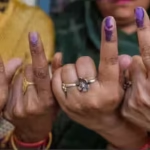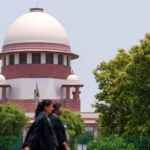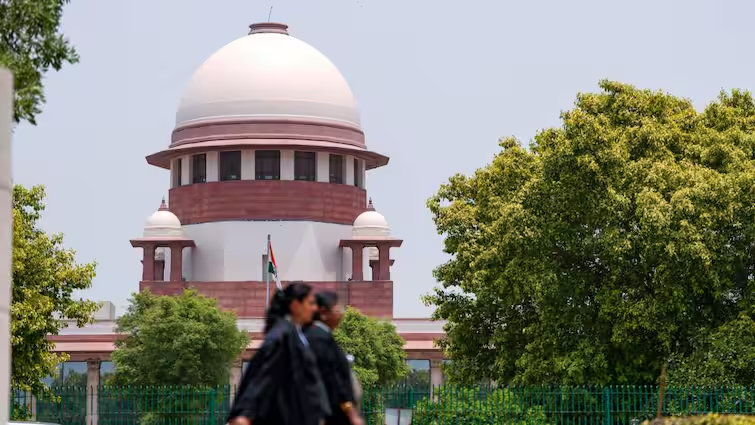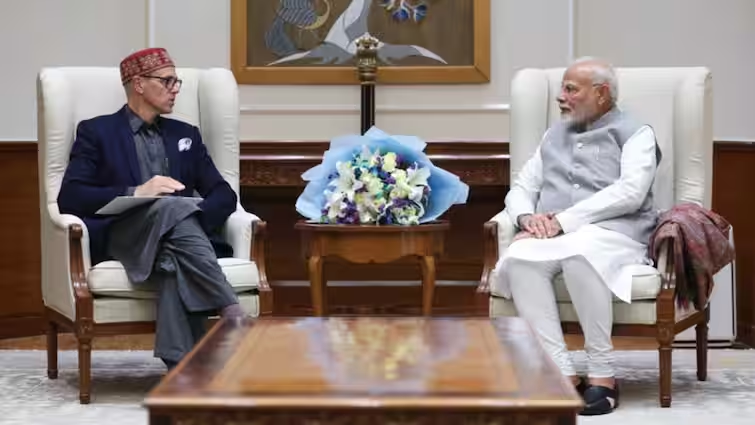‘Need Very Strong, Glaring Case for Interim Relief’: Supreme Court Hears Petitions Challenging Waqf Amendment Act, 2025
The Supreme Court of India on Monday conducted an extensive hearing on a batch of petitions challenging the constitutionality of the Waqf (Amendment) Act, 2025. The proceedings, which lasted over three hours, primarily focused on whether interim relief should be granted while the matter remains under judicial review.
A bench comprising Chief Justice of India D.Y. Chandrachud and Justice A.G. Masih emphasized the need for a compelling and extraordinary case to justify staying the operation of a statute.
“There is a presumption of constitutionality in favor of every statute. For interim relief to be granted, you must establish a very strong and glaring case. Otherwise, the presumption of constitutionality will prevail,” Chief Justice Gavai was quoted as saying, according to Live Law.
Petitioners Argue Irreparable Harm
Senior Advocate Kapil Sibal, representing the petitioners, argued that a strong prima facie case had been established and warned of “irreparable injury” should the contested provisions be enforced during the pendency of the case.
At the outset, Solicitor General Tushar Mehta urged the Court to confine the hearing to three specific issues previously highlighted by the Bench on April 16. “The Court had earmarked three issues, and we submitted our response accordingly. However, the petitioners’ written submissions now extend to several additional matters. I request the Court to restrict the discussion to the three previously identified issues,” Mehta submitted.
However, Senior Advocates Kapil Sibal and Abhishek Manu Singhvi opposed this limitation, asserting that no such restriction had been imposed by the earlier Bench led by then Chief Justice Sanjiv Khanna.
Allegations of Non-Judicial Waqf Capture
Sibal strongly criticized the amendments, alleging that they aim to enable the “capture” of waqf properties through non-judicial processes. He raised particular concern over provisions that allow a government officer to decide disputes concerning whether waqf properties have encroached upon government land. “The government determines its own procedure. Anyone can raise a dispute under this system,” Sibal argued.
He also objected to the nullification of the principle of “once a waqf, always a waqf,” and warned that under the amended law, non-registration of a waqf could result in the loss of its legal status.
Referring to the historical framework, the Bench noted, “From 1913 to 2023, although registration of waqf properties was provided for, non-compliance resulted only in the removal of the muttawalli (custodian), without further consequences.”
Discrimination and Religious Rights Concerns
Sibal contended that the provision requiring a person to have practised Islam for five years before creating a waqf was “per se unconstitutional.” He further criticized Section 3E of the amended Act, which invalidates waqfs in Scheduled Tribe (ST) areas, arguing that it violates the fundamental rights of Muslims belonging to ST communities.
Objections to Board Composition and Exclusion from Litigation
Sibal also objected to the inclusion of non-Muslims on Waqf Boards. “Previously, Board members were elected and entirely comprised of Muslims. Now, they are all nominated. Out of 11 members, up to seven may be non-Muslims. This is a violation of Articles 25 and 26 of the Constitution. The management of religious institutions must remain within the community,” he submitted.
The Bench, however, disagreed with this interpretation, noting that only two non-Muslim members could be nominated apart from ex-officio appointees. Nonetheless, Sibal maintained that “even two is too many,” and noted that no similar provision exists in Hindu endowment laws.
Additional concerns were raised regarding the abolition of the office of the Survey Commissioner, restrictions on the registration of disputed waqf properties, and the exclusion of such properties from approaching Waqf Tribunals. “My fundamental right to litigate is taken away. My property is seized, and I am left without recourse. This is manifestly arbitrary,” Sibal argued.
Broader Constitutional Issues
Senior Advocate Rajeev Dhavan highlighted that the proviso to Section 3A — which excludes Muslim-created trusts from the Act — could potentially impact similar properties. He further pointed out that a Sikh client who wished to dedicate property as waqf was now barred from doing so under the amendment, which restricts the creation of waqfs to Muslims only.
Senior Advocate Abhishek Manu Singhvi echoed the petitioners’ concerns and invoked the Supreme Court’s 2021 stay on the farm laws as a precedent for pausing the implementation of contentious legislation while legal challenges are underway.
Senior Advocate Chander Uday Singh contended that, historically, registration had never been a prerequisite for the legal validity of a waqf until the 2025 amendment.
Senior Advocate Huzefa Ahmadi also challenged Section 107 of the amended Act, which brings waqf matters under the scope of the Limitation Act, thereby making it difficult to contest earlier designations of evacuee properties.
Ahmadi further objected to Section 3D, which invalidates waqf declarations over protected monuments, warning that ancient mosques could thereby lose their waqf status. He also reiterated that the five-year Islamic practice requirement was arbitrary and intrusive.
Court Declines Further Submissions, Government to Present Arguments
Although Advocate Nizam Pasha sought time to make submissions, the Bench declined the request, stating that adequate opportunity had already been provided. The Court will now hear arguments from the Union Government on Tuesday.
Earlier, on April 17, the Central Government had assured the Court that it would refrain from enforcing specific contested provisions, including those relating to waqf registration and appointments to Waqf Boards, while the matter is under judicial review.
Political Reactions and Interventions
The case has drawn significant political attention, with intervention applications filed by several BJP-led States — including Assam, Rajasthan, Chhattisgarh, Uttarakhand, Haryana, and Maharashtra — in support of the legislation. Kerala has also expressed its support.
Among the petitioners are prominent political and religious leaders and organizations, including AIMIM MP Asaduddin Owaisi, AAP MLA Amanatullah Khan, Jamiat Ulema-i-Hind President Arshad Madani, TMC MP Mahua Moitra, the Indian Union Muslim League, All India Muslim Personal Law Board, the Communist Party of India, DMK, and RJD MP Manoj Kumar Jha.
The hearing on the Waqf Amendment Act is scheduled to continue before the Supreme Court on Wednesday.














